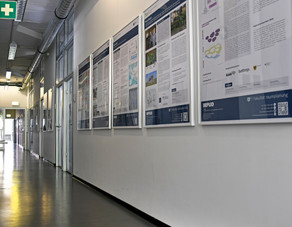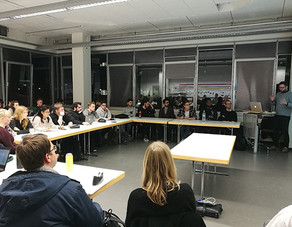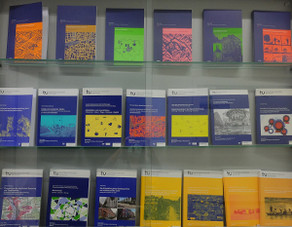Wintersemester 2025/2026
Moderne Gesellschaften sind verwundbar gegenüber vielfältigen Prozessen, die sowohl natürliche wie menschgemachte Ursachen haben (siehe COVID-19!).
In der Regel haben Risiken eine räumliche Komponente, weil sie in bestimmten Räumen entstehen, sich ausbreiten und auswirken.
Raumplanung trifft Entscheidungen, ob und wie bestimmte Räume genutzt werden sollen und hat dabei ihre Gefährdung gegenüber Natur- und Technikgefahren sowie die Verwundbarkeit von Raum- und Siedlungsstrukturen zu berücksichtigen. Planerische, vorbeugende Auseinandersetzung mit Risiken aus natürlichen und technischen Gefahren ist eine wichtige Aufgabe für Raumplanung wie auch die Extremhochwasser diesen Sommers gezeigt haben. Die Bedeutung nimmt durch Klimawandel weiter zu.
Ziel des Seminars: Die Vermittlung der raumplanerischen Relevanz der Risiken aus Natur- und Technikgefahren. In dem Seminar sollen die maßgeblichen Theorien der Hazard- und Risikoforschung, aber auch der Klimafolgenforschung diskutiert werden. Des Weiteren ist eine kritische Auseinandersetzung mit der Rolle der Raumplanung bei der Abschätzung und beim Management von Risiken und der Anpassung an den Klimawandel vorgesehen. Schließlich werden konkrete Anwendungsfälle aufbereitet und vor dem Hintergrund des erlernten Theoriewissens reflektiert.
Termin: Dienstag, 14.10.2025 bis 03.02.2026 , 10:15 - 11:45 Uhr, wöchentlich
Ort: GB III, R 517
Weitere Informationen: Veranstaltung im LSF
Dozent: Prof. Dr. Stefan Greiving (RER)
Today the impacts of climate change belong to the most challenging issues in planning at all administrative levels. The seminar therefore intends to introduce the different facets of climate change and its inherent risks as well as to provide showcase strategies and approaches which are appropriate for communities to cope with them. The mission is to enable future planners to address impacts of climate change through mitigation and adaptation measures involving relevant actors and stakeholder. The first part of the seminar is shaped by faculty members introducing principles of climate change and risk management. The second part focuses on individual presentations from participants dealing with specific aspects of climate change to acquire more practical knowledge.
Termin: Dienstag, 14.10.2025 bis 03.02.2026, 08:30 - 10:00 Uhr, wöchentlich
Ort: GB I, R 410
Weitere Informationen: Veranstaltung im LSF
Dozenten: Prof. Dr. Stefan Greiving (RER)
The recent flood events in Germany illustrated once more the need for more land for flood. Traditional flood protection strategies, predominantly reliant on grey infrastructure like dikes and dams, prove inadequate in managing the dynamic nature of flood risks independently. Nature-based solutions (NBS) emerge as promising alternatives to complement grey infrastructure, as NBS is able to combine flood retention functions with other land uses. However, effective implementation of NBS requires a careful selection of land and solutions, as well as tailored strategies to succeed implementation.
Here is a role for spatial planning. As NBS implementation has to happen on private land, it is in the power of planners to activate the land in private ownership. Addressing these landowners requires responsive strategies, such as compensating or incentivizing flood retention services, or property rights issues allowing temporary flood storage on private land, or public participation to ensure involvement of private landowners, and the integration of flood retention into agricultural subsidies.
This course zooms in on multiple case studies across Europe where the implementation of NBS is required to tackle climate impact. Throughout the course, we will discuss the challenges these case studies are facing, and discuss the possible strategies to move forward for each case study. Through these cases, students will:
- First, students will know how diverse NBS potentially alleviate various climate risks
- Second students will know how different strategies are needed to implement these NBS.
Third, students are able to develop a policy advice for implementing NBS on private land that evaluates what NBS are needed, and what strategies fit the implmentation procedure, in a specific case study
Weitere Informationen: Veranstaltung im LSF
Dozenten: Dr. Peter Davids






